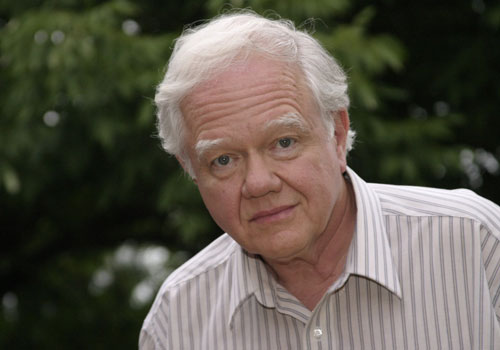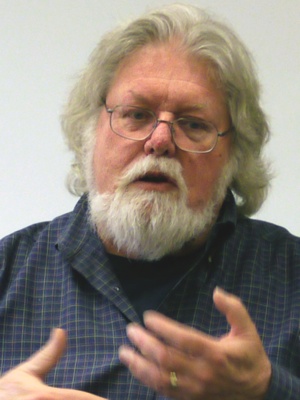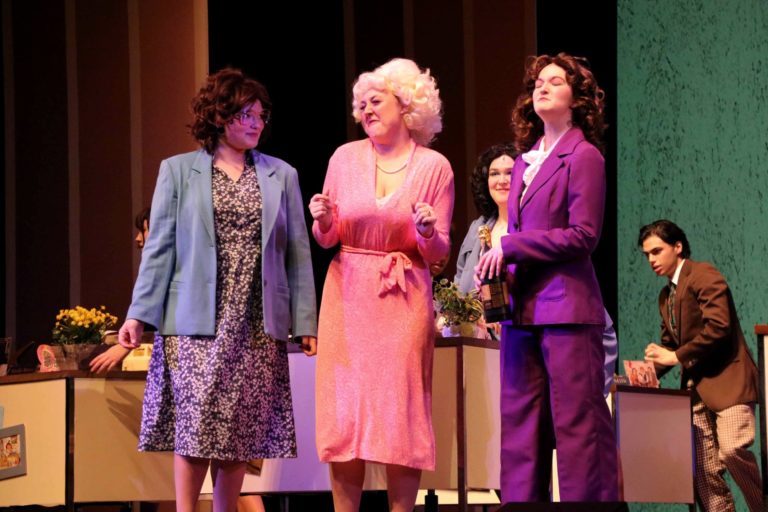Some of the longest-serving faculty members at the College of Arts & Letters are retiring this month. James Roper, Ken Harrow, and Nancy Bunge who each have served the university for more than 40 years, will retire on Wednesday, May 16. The three have worked at the university for a combined total of 151 years.
Also retiring on May 16 is Patrick O’Donnell, who has been a member of the College of Arts & Letters faculty for 21 years.
James Roper
James Roper, Associate Professor in the Department of Philosophy, began his 54-year career at MSU in September 1964.
He taught Business Ethics, a course he designed and placed in the curriculum. He also taught courses in Moral and Political Philosophy, Philosophy of Science, and Advanced and Informal Logic. He also founded and, until July 2000, directed Michigan State University’s national champion Debate Team and the annual Spartan Debate Institutes.
“My goal as a teacher is to provide my students with some philosophical tools to help them ‘look past all the noise’… to the truth,” Roper said.

He has published articles in Philosophy of Science, Synthese, Journal of Business Ethics, International Journal of Ethics, Florida Philosophical Review, International Journal of Intelligence Ethics, American Philosophical Association Newsletter on Teaching, Essays in Philosophy, and many other journals, books, periodicals, and newspapers.
Five recent encyclopedia articles — Robots and Automation; Risk; Monopolies, Duopolies, and Oligopolies; Socially Efficient Regulation of Pollution Externalities; and Revealed Preference —were published in April 2018 in the revised second edition of the Encyclopedia of Business Ethics and Society, a Sage Publication. Three of these entries also appeared in the first edition, in 2007-2008, which received the RUSA and Choice awards. Three other encyclopedia articles, Coercion, Economic Rights, and Individual Rights, appeared in the Encyclopedia of Global Justice, Springer 2011.
Since 2009, Roper has published five single-authored books — two editions of Dimensions of Informal Logic and three editions of The Covenant of Democracy: Should Government Be Run Like a Business? The latter book argues that government is best justified by a “social covenant,” while large publicly traded corporations are only capable of entering into contracts because they are not members of “the moral community.”
Ken Harrow
Ken Harrow, Distinguished Professor of English, began his career at Michigan State University in September 1966, and for nearly 52 years has taught English and Humanities classes in the Department of English.
“I’ve enjoyed most of the challenges of engaging brilliant thinkers,” Harrow said. “Working with graduate students in class and with their dissertations represents a high point, where collaboration, mentoring, and advising becomes a challenge whose goal is to help someone create a new career for themselves. It is in reflecting on this that I want to exclaim, in these times, how vital, how absolutely vital, this intellectual enterprise is for us, for all of us in this country.”
From 1977 to 2017, Harrow led a number of study abroad programs to France, Mexico, the United Kingdom, and Senegal.

His scholarship, which focuses on African cinema and literature, diaspora and postcolonial studies, is extensive. He has written four books, published 63 articles and 28 book chapters, and edited numerous collections. He also has organized several conferences dealing with African literature and cinema and has presented and been invited to speak all over the world.
Throughout his career, Harrow has been recognized with many awards and fellowships, including the Distinguished Africanist Award presented at the Toyin Falola Annual Conference, African Studies Association Public Service Award, and MSU’s Paul Varg Alumni Award. In 2010, he received MSU’s Distinguished Faculty Award. He also served as President of the African Literature Association and was honored with their first Distinguished Member Award.
Harrow was a National Endowment for the Humanities (NEH) Younger Humanist Award recipient, which took him to France, Algeria, and Morocco. He also is a three-time Fulbright Senior Lecturer, for which he traveled to Cameroon and twice to Senegal.
Nancy Bunge
Nancy Bunge, Professor in the Department of Writing, Rhetoric, and American Cultures, began her career at Michigan State University 45 years ago in September 1973.
She taught courses in the first-year writing program and in the Integrated Arts and Humanities program. For this work, she won the Teacher-Scholar Award and the Fintz Award for Excellence in Teaching the Arts & Humanities.
Bunge has held Senior Fulbright lectureships at the University of Vienna, the Free University of Brussels, the University of Ghent, and the University of Siegen and spent a year as a visiting scholar at Harvard Divinity School.
She has published six books on a variety of topics including authors’ writing and teaching processes, the life of a 19th century missionary wife, the Midwestern novel and the authors Clarence Major and Nathaniel Hawthorne.

The Society for the Study of Midwestern Literature presented her with the MidAmerica Award for her contributions to the study of Midwestern literature. She has more than 90 contributions to books and periodicals including work in The Washington Post, The American Poetry Review, The Writer’s Chronicle, Philosophy Now, Poets & Writers Magazine, and The Chronicle of Higher Education.
After retiring, Bunge plans to continue working on her seventh book about a missionary family’s interactions with the Ojibwe.
“I’m now working on my seventh book and relishing the freedom to focus on my own work,” Bunge said. “I expect to miss interacting with kind, lively, hard-working MSU students.”
Patrick O’Donnell
Patrick O’Donnell joined Michigan State University in 1997 as Professor and Chair of the Department of English. He served as Department Chair for 10 years and later returned to the position in 2012 to serve for another two years.
“I’ll remember my time at MSU for the many terrific colleagues in the English Department with whom I worked,” O’Donnell said. “In retirement, I look forward to traveling with my wife, Diane, and friends, to spending time with my three grandchildren, and to having more time for my writing.”
O’Donnell’s research focuses on modern and contemporary literature; postmodern literature, theory, and culture; history and theory of narrative; American literature; American Studies; and film.

He has published more than a dozen books on modern and contemporary literature with three more in the works including a book on Henry James and contemporary cinema; an introduction to the fiction of Thomas Pynchon for Cambridge University Press; and a co-edited encyclopedia of American fiction from 1980-2020 to be published in 2012 by Wiley-Blackwell.
His single-authored books have received nominations for high-profile awards, and his edited collections serve as key resources for scholars and students alike. Throughout his career, he has had editorial responsibilities at some of the most prestigious academic journals in his field.
O’Donnell began his career at the University of Arizona, where he rose to the rank of Professor. He then held the Eberly Family Distinguished Professorship of American Literature at West Virginia University and was Professor and Editor of Modern Fiction Studies at Purdue University.
O’Donnell also has taught at several international universities, including the Université de Bordeaux III in France, the Universität Tübingen and the Universität Stuttgart (as Senior Fulbright Professor) in Germany, and Radboud University Nijmegen (as Fulbright Distinguished Chair of American Literature) in the Netherlands.


